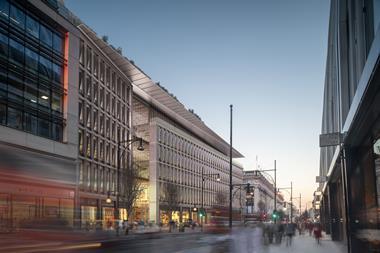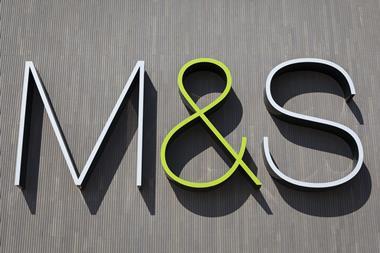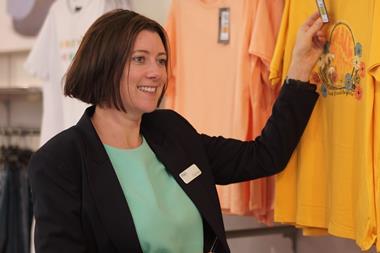Marks & Spencer has suffered a slump in sales during the golden quarter as trading restrictions sparked by the coronavirus crisis hindered its performance.
The high street bellwether posted a 7.6% drop in like-for-like sales in the 13 weeks to December 26. Total sales were down 8.4% to £2.77bn.
Food sales grew 2.6% on a like-for-like basis across the quarter, while same-store sales in its clothing and home division tumbled 24.1%.
During the key month of December, M&S said total sales fell at the much slower rate of 3.6%.
Revenues rose 4.4% in its food division in December, but were down 19.4% in clothing and home.
Although its stores were impacted by the introduction of further trading restrictions amid the ongoing coronavirus crisis, M&S hailed its ecommerce performance.
The retailer said total online clothing and home sales jumped 47.5% to £353m during the quarter and 47% in December.
M&S boss Steve Rowe described the retailer’s performance as “robust” amid the “on-off” trading restrictions placed upon the business during the pandemic.
The retailer cautioned that the new nationwide lockdown would continue to impact store sales, but said it was “continuing to actively manage our clothing and home stock and our store cost base accordingly”.
Rowe added: “Near-term trading remains very challenging, but we are continuing to accelerate change under our Never the Same Again programme to ensure the business emerges from the pandemic in very different shape.”
Details emerged yesterday of new tariffs that UK retailers were set to face following the country’s exit from the EU.
Although trade between the UK and the EU remains tariff-free under the Brexit deal struck on Christmas Eve, items imported into the UK from elsewhere and then sold into the EU are not exempt from tariffs.
Fashion retailers including H&M and River Island told ITV they expect to pay penalty tariffs on some clothing sent between their UK and European businesses.
M&S warned this morning that potential tariffs on ranges it exports to the EU, and the introduction of “very complex administrative processes”, would “significantly impact” its businesses in Ireland, the Czech Republic and its franchise business in France.
The retailer said it was now “actively working to mitigate” the impact of the new tariffs.


























1 Reader's comment